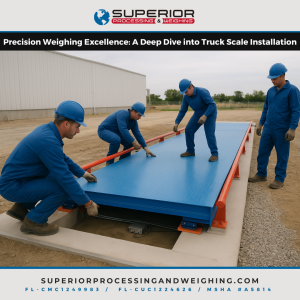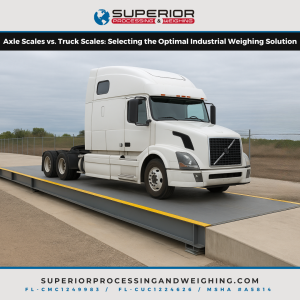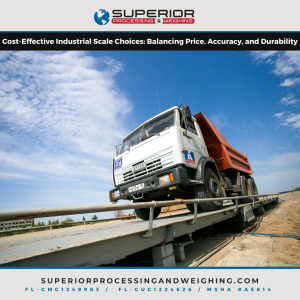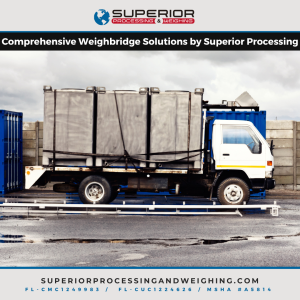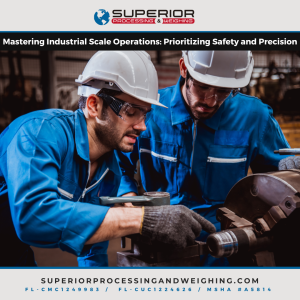Superior Processing and Weighing understands that the accuracy of commercial scales is a cornerstone for a multitude of industries, from automotive to recycling. Ensuring this accuracy means committing to regular calibration — a process where your equipment’s performance is benchmarked against known standards. This article delves into balancing precision with practicality, helping you determine the right calibration frequency for your scales.
Demystifying Calibration for Weighing Equipment
Calibration is a comparative process, where the outputs of your weighing equipment are validated against a recognized standard. Accurate calibration corrects any deviations, aligning your scale’s measurements with established norms. This is achieved by testing with certified weights and making the necessary adjustments to reflect precision.
Why Regular Calibration is Imperative
A one-time calibration is not enough to guarantee lifelong accuracy. Scales can deviate due to environmental changes, mechanical impacts, or simple wear and tear. Continuous accuracy is key not only for quality control but also for safety and cost-effectiveness. Regular calibration minimizes potential errors, making it a pivotal routine procedure.
Determining the Right Calibration Interval
Various factors, such as usage intensity and environmental conditions, influence how often you should calibrate your weighing equipment. Guidelines range from quarterly calibration for high-precision scales in sensitive industries to annual checks for less critical applications. These should be adapted based on in-depth consideration of several factors:
- Usage intensity
- Industry requirements
- Manufacturer’s advice
- Scale performance history
Tailored Calibration for Different Industries
With diverse regulatory demands across industries, calibration frequency must adapt accordingly. High-stakes environments like the pharmaceutical industry may require more frequent calibration than those with less stringent conditions. Understanding these specific needs is crucial for maintaining compliance and assuring measurement integrity.
Manufacturer’s Input on Calibration Schedules
The scale manufacturer’s recommended intervals, derived from the equipment’s design and testing, are critical to determining your calibration schedule. These recommendations should not be overlooked as they complement regulatory guidelines and industry best practices.
Regulatory Compliance and Standards
Adherence to industry-specific regulations is a non-negotiable aspect of calibration frequency. Following these mandates ensures legal conformity and upholds the trustworthiness of your measurement-related activities.
Learning from Past Performance
The historical stability and reliability of your equipment can guide the calibration timeline. A pattern of consistent accuracy can extend intervals, while frequent discrepancies might require closer monitoring and increased calibration frequency.
The Integral Role of Calibration
Regular calibration is essential, serving as the backbone for accurate weight measurement. By customizing your calibration routine, you ensure that your scales are not only an asset but a bedrock for operational excellence and regulatory adherence.



